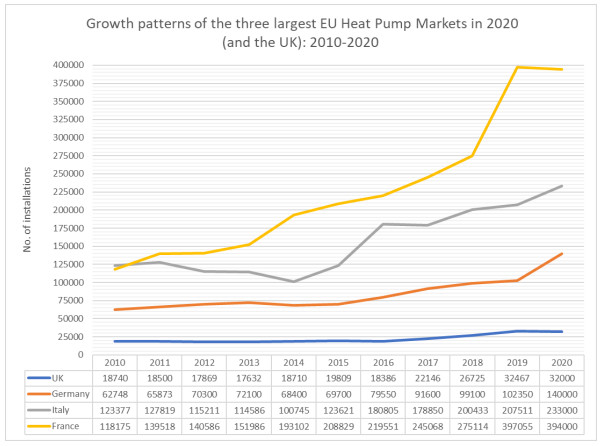Government Decarbonisation Policy is not working
A YouGov survey of MPs found that the Government's progress on making our homes fit for the future is not working.
The survey found that:
- Over half (56%) agree that all homes in the UK must be made low carbon as an infrastructure priority
- and that this should be supported by the Treasury
- Over three quarters (77%) agree that small-scale renewables should be incorporated into all new builds from 2022
- Less than half of MPs believe the Government is providing sufficient support in any of the following areas:
- Installing 600,000 heat pumps a year by 2028
- Providing financial support to retrofit homes
- Providing a stable long-term grant scheme to reduce the cost of heat pumps
- Providing information and advice to communicate the need for Net Zero
- Reducing the UK's reliance on carbon-intensive energy sources such as oil and gas
So there is broad support from MPs across the parties to make our homes fit for the future, with a lack of faith that existing policy will achieve it.
The survey was commissioned by the MCS Charitable Foundation.
See the full press release and links to the survey.
The survey also found that almost half the MPs would support the removal of VAT on all domestic renewables and energy efficiency measures.
David Cowdrey of MCS said, "It appears, from the survey results, that over half of MPs don't feel that at the current rate of progress that we're going to meet net zero targets and the recently released Heat and Buildings Strategy failed to provide the catalyst the sector so desperately needs.
"Following COP26, home decarbonisation should be a top government priority. Banning all fossil fuel heating from new homes by December 2023 and investing in a green heating future can cause a ripple effect. It's good for the economy and the environment. Boosting green skills will also create thousands of new jobs with people trained to future proof the way we heat our homes."
Climate Change Policy has impact in France, Germany and Italy
Research by MCS analysing the policy landscape in France, Germany and Italy, combined with an analysis of the number of heat pumps installed in each country shows that the introduction of a range of financial and regulatory measures resulted in a clear, measurable impact on the number of heat pumps installed in each country. By providing a longterm, stable policy landscape and decreasing upfront costs to homeowners through grants, subsidies, loans and reduced VAT rates installations have shown a clear upward trend from 2013 across France, Germany and Italy:


